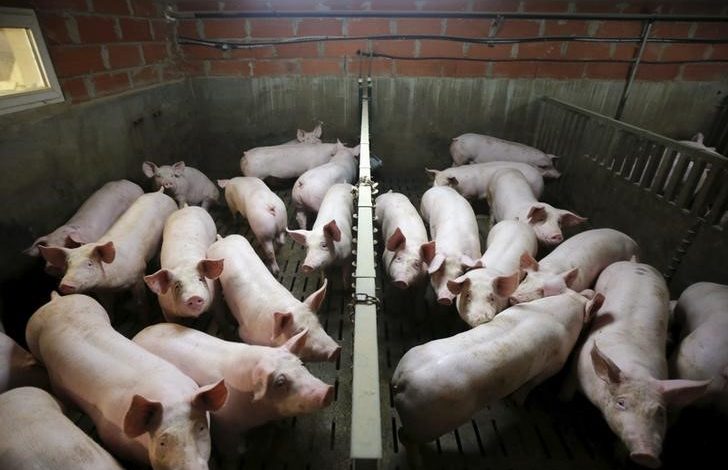
Save Our Bacon: British Farmers Demand Action as Pig Cull Approaches
By Kate Holton and James Davey
LONDON – British pig farmers have issued a warning of a impending pork crisis unless the government rapidly addresses a severe shortage of workers in abattoirs and butchers. The current situation has led to approximately 150,000 pigs being stuck on farms, with the threat of a costly cull hanging over them.
The challenges stem from a combination of Brexit and the pandemic, which have created significant labor shortages across various sectors in the UK. Particularly, a lack of drivers has disrupted fuel and supermarket supplies.
In the food industry, the departure of many Eastern European workers following the easing of COVID-19 restrictions has left pig farmers in a precarious position. On Friday, they appealed to retailers to avoid sourcing cheaper pork from the European Union.
The National Pig Association indicated that the industry is increasing wages and working to enhance training and automation to address longstanding labor issues. However, farmers are still grappling with a dire need for butchers and slaughterers, resulting in a backlog of pigs that should have already been processed.
The prospect of culling pigs has revived memories of the Foot and Mouth crisis in the UK in 2001, which saw millions of animals slaughtered. Similarly, recent events in the United States saw farmers forced to abort piglets and cull livestock due to pandemic-related disruptions in supply chains.
The UK association has called on the government to relax immigration restrictions for a period of six to nine months to help the industry recover. Unfortunately, discussions with the government have reached a standstill.
“I receive calls daily from farmers nationwide who are in a dire situation due to the overwhelming number of pigs on their farms,” said Rob Mutimer, chairman of the association and a farmer in Norfolk. He noted that while the industry anticipated a loss of European labor post-Brexit, the sudden exodus triggered by the lifting of COVID-19 travel restrictions caught them off guard.
“The entire food sector is struggling to manage such a significant short-term labor loss,” he remarked.
Mutimer acknowledged the need for the industry to invest in training local workers and automation, stating that significant efforts are underway to reduce dependence on foreign labor. Some processing facilities have even increased wages by 15% as they adapt to the reality of relying on affordable labor for too long. However, immediate government support and continuous purchasing by retailers remain critical for the industry.
Adding to the difficulties, Mutimer mentioned that food costs on his farm have surged by 35% over the past year. “This situation is putting immense financial strain on me. The costs of feeding these additional pigs are overwhelming, and the cash flow issues from not being able to sell enough pigs are dire. Moreover, the pigs were already not profitable,” he emphasized.
 GOOGL
GOOGL  META
META 


